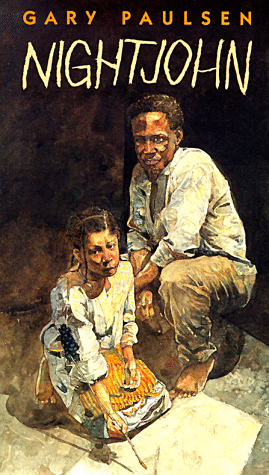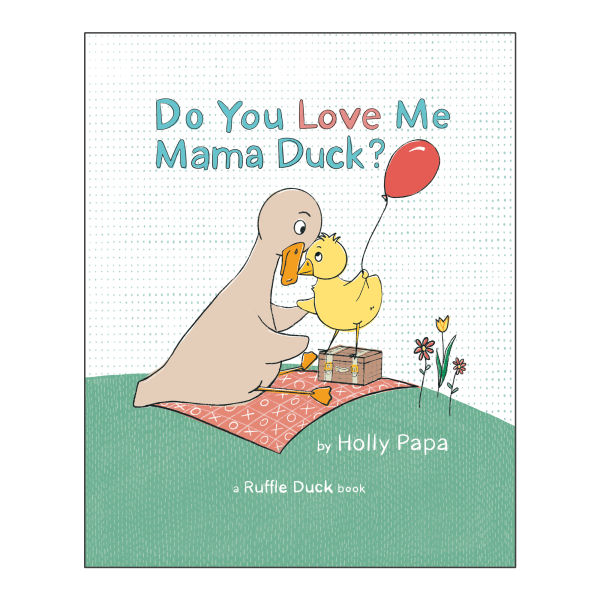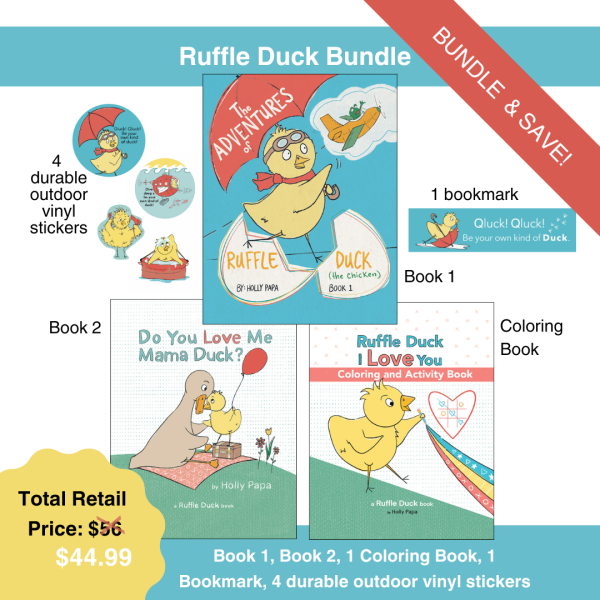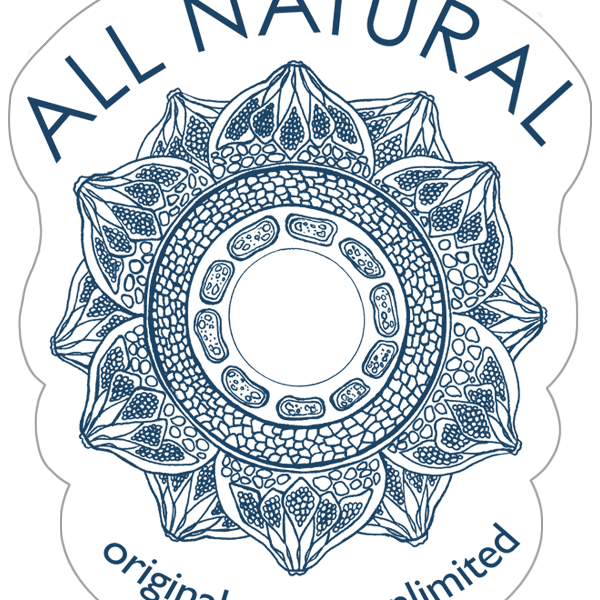 In honor of Black History Month we chose a title from acclaimed author Gary Paulsen – the author of Hatchet the Brian books. His website is here and Iditarod Journal here. We really struggled with this post and it took a while for us to figure it out. After our review we discuss why.
In honor of Black History Month we chose a title from acclaimed author Gary Paulsen – the author of Hatchet the Brian books. His website is here and Iditarod Journal here. We really struggled with this post and it took a while for us to figure it out. After our review we discuss why.
Some spoilers below!!!!!
Cari: We also chose the book because of the emphasis on literacy and the power literacy brings to those who have it and the efforts and extremes people go to prevent people from learning to read.
Holly: You can turn that around to say the lengths people will go to to learn to read.
Cari: The main character’s name is Sarny and she is a young slave about 12 years old who cannot read and who more importantly is forbidden to learn to read. The title of the book comes from another slave named Nightjohn who is purchased by Sarny’s owner (Waller) during the course of the story.
Parts we liked:
Holly: I’m not sure there are parts I really liked in the sense that it’s a fun read because it’s not. It’s hard to read about the cruelty. I do like when Sarny was drawing the numbers she saw on a bag because it shows that children are naturally oriented towards learning. Sarny is a curious and thoughtful child. She observes just about everything.
Cari: I liked that Paulsen did research to write his book. This is going to sound very teacherish of me, but I told my students all the time that good writers do research about their topics especially with historical fiction. I also think he does a good job of describing what life was like as a black slave in the United States.
Things that shocked us
Cari: I actually first listened to the book several years ago with my husband on a road trip. Got to love audio books, they can save you on long trips. I remember being shocked at how the women were viewed as breeders and only certain men were allowed to ‘breed’. I think Paulsen does it to give you a sense of how dehumanizing slavery can be.
Holly: I was surprised to learn that they were forbidden to pray. Was it that way everywhere? I thought they were encouraged to be Christian?
Cari: I don’t know if all praying was forbidden.
Holly: I thought sometimes slaves were required or told to pray
Cari: Maybe the concern was with praying for freedom because I could see where that would cause problems if you don’t want your slaves thinking about running away.
Holly: I was saddened by the fact that the girls . . . well that Sarny tries to hide the start of menstruation because she knows that means she will have to go the breeder’s shed.
Cari: I agree with you
Holly: Um I thought the name was fitting for having a period – the troubles was fitting. Yeah because it did cause troubles.
Cari: The troubles cause all kinds of problems. Talk about consent and not to mention mothers and fathers had no guarantee they could stay with their child or raise them. Sarny herself doesn’t remember her birth mom or know her father and Mammy is her primary care giver. As a mother and as a human being . . . I say that is just wrong.
Holly: Paulsen dedicates this book to Sally Hemmings a slave of Thomas Jefferson. Do you know anything about that?
Cari: The research I’ve done indicates that likely somebody in the Jefferson family did father some of Sally’s children. It’s possible Thomas Jefferson did, but it is possible it could be another male relative of his. It’s a hot topic that scholars and descendants debate. Thomas Jefferson was very contradictory. He wrote the Declaration of Independence and did not believe in slavery, but held slaves. The only slaves he freed were related to Sally and she was not freed upon his death. No one, I think, can say for certain what Jefferson’s relationship was with Sally Hemmings.
Holly: Would a male plantation owner with slaves admit to fathering children?
Cari: I don’t know some might have others did not. It would probably depend on the situation and how much they stood to lose. People accused Jefferson of fathering slaves during his life time so this issue has been around for a long time.
Holly: It’s possible that someone was trying to slander Jefferson in public. He wasn’t always honest himself though. . . you know he hired someone to spread rumors about John Adams when they were contending with one another for president. . . definitely he was a politician.
Cari: I find him a fascinating historical figure. He is human and therefore subject to all the greatness and weakness that comes with being human.
Back to the book:
Cari: When Nightjohn is a new slave to the plantation he has horrible scars on his back which indicated he has run away or was difficult to deal with. He offers to teach Sarny to read in exchange for tobacco. Reading is important, but I love that Nightjohn also teaches her to write. Mammy questions Nightjohn about the value of teaching Sarny to read:
“Why does it matter?” Mammy leaned against the wall. She had one hand on the logs, one on her cheek. Tired. “Why do that to these young ones? To Sarny here. If they learn to read – ”
“And write” “And write, it’s just grief for them. Longtime grief. They find what they don’t have, can’t have. It ain’t good to know that. It eats at you then – to know it and not have it.”
“They have to be able to write,” John said. Voice pushing. . . . “They have to read and write so we can write about this – what they doing to us. It has to be written.”
Holly: A lot of the world can be changed with writing. Reading is great, but without writing it is not as useful. Unfortunately Sarny slips up and Waller catches her writing a word. So the plantation owner basically uses tortures to get Mammy to tell who has been teaching reading. In order to save Mammy from more whippings Nightjohn confesses to teaching Sarny how to read and write.
Cari: At this point in the book I was really nervous for Nightjohn, I wondered if they would kill him, instead they dismember part of his body.
Holly: It hadn’t really sunk in what dismemberment would mean until I read about Nightjohn losing his toes. Very graphic and painful. It also marks him, anyone can tell that he has been caught trying to teach people to read so they can give out a harsher punishment if he is caught again. I really like the character of Nightjohn. He escaped slavery and came back to teach reading and writing. I would really like to know the character he is based on.
Cari: Me too! If I were using this in a classroom I would lament the fact that there is no bibliography and tell my students that if they ever become authors put a bibliography in the book. People are amazing they will give up a lot to learn to read and write. It reminds me of the women in Afghanistan under the Taliban who taught reading or wanted to learn to read.
Holly: Disney made this book into a movie and I found it interesting to read about the teacher who was called in to coach the child actress who played Sarny. He talked about how every day there was a new realization for her of what slavery was like. I’ve never seen the movie, just read about it.
Cari: This book is not long, but it is considered young adult because of the brutality of the theme. The movie is PG-13 by the way.
Holly: We can learn from Nightjohn and other great books like it, that change is possible, progress can be made. Just think of Great Grandma Whitman, who remembered a time when servants were called darkies and who left the South to teach in the West. In just a few generations you go from slavery to integration to a wonderful mixed-big happy family (at least in our immediate family anyway).
Cari: I think that literacy will do a great deal to help people who are trapped by modern slavery. But that’s really a topic for another time. As we all know, slavery does not equal Black or vice versa and this is Black History Month so I think we should note that there is under construction a National Museum of African American History and Culture – the first of its kind in our nation.
Holly: I think that it’s about time! I’d love to go someday. I remember winning the 2nd Grade “I Have a Dream” contest. Mostly I remember writing about how we should all be good friends to one another and we would all be happy. I think that Dr. Martin Luther King would have liked that.
Why this Doublescoop was so hard.
Cari: So we almost didn’t go through with this post. This one was the hardest one we have done so far.
Holly: Yeah, we seriously considered giving up and had several conversations about doing something else, but then we started talking about why we were struggling. It comes down to this one word – race.
Cari: That one word is a bundle of emotions and history. You fill it out on lots of forms from job applications to school forms and it is a big part of No Child Left Behind legislation.
Holly: When I think about Dr. Martin Luther King and his dream, it would be so nice to live in a colorblind society. My middle son started the year as the only white child in his kindergarten class (now there’s two). The kids don’t seem to notice a whole lot, but race still seems to matter in certain places. I know junior high can be particularly rough as I’ve seen many kids line-up along racial groups and really give each other a hard time. So somewhere in the scheme of things race seems to matter.
Cari: Which reminds me of a book by Beverly Tatum called Why are all the Black Kids Sitting Together in the Cafeteria? This book talks about the phenoman which you describe. While it would be nice if we lived in a colorblind society . . . we don’t and there is definitely anxiety about race on many sides of the color line.
Holly: I think a lot of anxiety came from doing this review right. Racial relations can be really touchy and I think we are worried about messing this up . . . you know we don’t want to be accused of being racist.
Cari: That last word racist, is like a loaded gun. Tatum talks about that in her book about when people, particularly white people are accused of being racist. It gets them at their core, their gut. We all know it’s bad to be racist and most of us don’t want to be. We know it’s wrong . . . and yet most of us probably have some sort of false premises about race and may have some racist thoughts or behaviors we are not aware of. Like the most common one I can think of is how people react if they see a black teen walking down the street. Do you cross the street, lock your car door? Or that there is more than one race when really there is one- the human race. We still deal with race because of our past that has been passed down to us and it matters. I guess that’s why I love history so much because it explains so much of the present.
Holly: Race issues are tough and we hope that someday in another 100 years people will look back and see the progress made and maybe society will be beyond race. The only way to accomplish that is through education. People need to be able to read and write. So just like in Nightjohn, everyone needs to read and write, so they can have a voice. That, I think, will help to go a long way towards fulfilling Dr. Martin Luther King’s dream.






Thanks for this great post, Cari and Holly. I found Nightjohn to be a powerful, albeit, painful book to read. I’m glad you decided to post your thoughts after all. We have to keep the channels of discussion open. It’s the only way we can all move forward as a country.
jama – Thanks for stopping by and reading Nightjohn is a powerful experience. Keeping the channels of discussion open is what we had in mind when we chose to post about our experience with this book.
Wow! This is a powerful, thought provoking post. Great job ladies and thank you for discussing this book and the topic of race. Slavery in this country existed not very long ago…. I think I would have a hard time reading this book as I am prone to crying my eyes out with stories like this one.
Thank you .
Okay, so I just finished reading this book literally five minutes ago and then had to race onto the computer to read your post. Great discussion! This book was cruel. I had to stop reading several times. It was really difficult to read and comprehend how evil some people could be. Very powerful book.
What a great Doublescoop! I find slavery so tough (but important) to talk about with my children. Books are a good “in” to those important conversations.
Kim – Yes it is a hard book and you know I haven’t seen the movie yet because I’m afraid it will give me nightmares.
Natasha – This is a very powerful book. When I listened to it with my husband we had to stop a few times so we could discuss it. Can’t wait to read your post.
Christine – Slavery is a tough subject. It is so hard to understand how people can be mean. I agree books are a great ‘in’ to talking about tough subjects with our children.
jama- You’re welcome! Thanks for commenting and for being part of helping us all move forward.
kim baise- Sometimes truth (even in fiction) is a hard reality. Luckily, we can put books down and take breaks, or skip a few pages if we are getting too emotional or overwhelmed. The characters in the story have to live it every time. Good luck if you ever end up reading the book! I think it’s worth a few tears.
Natasha- I agree that this is a very powerful book. Education really does wonders to prevent evil and cruelty. I found this book as disturbing to read as many of the holocaust books. That says a lot for the level of inhumanity that occurred. I’m looking forward to reading your review soon.
Christine- I love when books do the talking for me. Don’t get me wrong- I do a lot of talking, it just is easier when there are other people to back you up, and it’s hard for kids to argue with something on paper. Whereas Mom very obviously doesn’t know everything.
Cari- Yeah, I think that reluctance to watch the movie is the same for me. And, I think that most people are mean because of fear. Fear is a breeding ground for all sorts of nasty things.
Wow! What a powerful review on Nightjohn. I’m so glad you did it.
Sharon – Thanks, we are glad that we went through with it. It is definitely one of those reads that won’t forget.
I haven’t read this so I didn’t read your post but I definitely need to try to read it this month and get back. It sounds like a powerful book.
mamma couldent of learned how to read and write because she was sold, sarny wanted to read and write she was the one who paid NIGHT JOHN a pintch of tobacco every letter
Such a great post inspired people who read it..I’m waiting more good quality post from this, so bookmark!